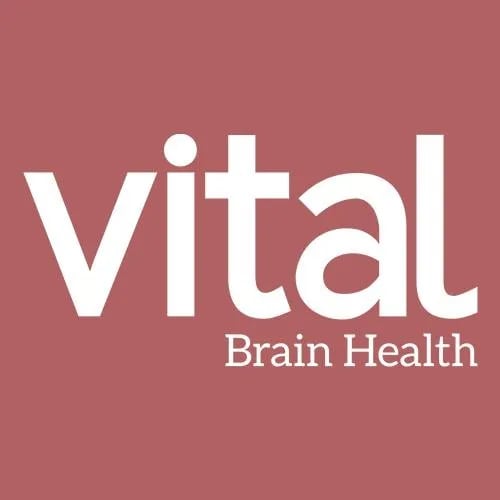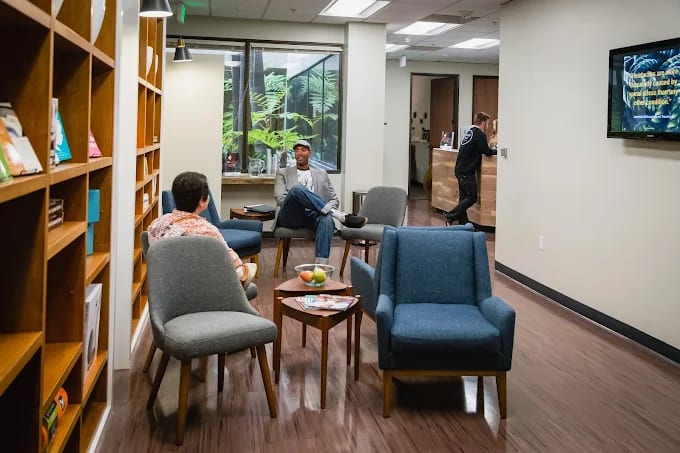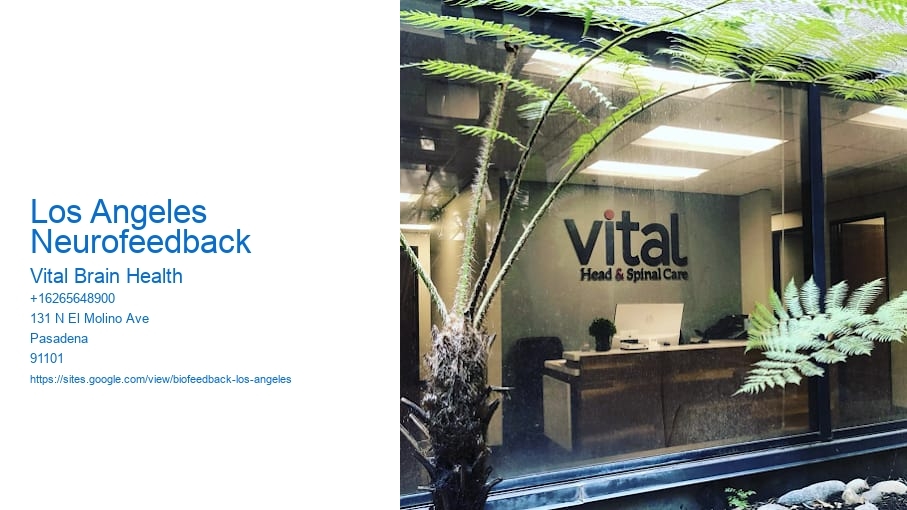Benefits of Neurofeedback for Mental Health
Neurofeedback, a burgeoning field within mental health treatment, is increasingly gaining attention for its potential benefits, particularly in vibrant, health-conscious cities like Los Angeles. Neurofeedback Los Angeles . As a non-invasive therapy option, neurofeedback offers a unique approach to mental health by targeting the brains electrical activity to promote improved functioning. This technique is particularly appealing in a city known for embracing innovative and holistic health solutions.
At its core, neurofeedback is based on the concept of brain plasticity-the brains ability to reorganize itself by forming new neural connections. Through a series of sessions, individuals are trained to regulate their brainwave patterns using real-time feedback, often presented in the form of visual or auditory cues. This self-regulation can lead to significant improvements in various mental health conditions, including anxiety, depression, ADHD, and PTSD, among others.
One of the key benefits of neurofeedback is its non-invasive nature. Unlike traditional pharmacological treatments, neurofeedback does not involve medication, making it an attractive option for those who may experience adverse side effects from drugs or prefer drug-free therapies. In Los Angeles, where wellness and natural health alternatives are highly valued, this aspect of neurofeedback resonates well with the local population.
Moreover, neurofeedback is tailored to each individuals unique brain activity, offering a personalized treatment experience. This customization is particularly beneficial in a diverse city like Los Angeles, where the population presents a wide array of mental health needs and cultural backgrounds. Practitioners can adjust protocols to better suit the specific challenges and goals of their clients, enhancing the effectiveness of the therapy.
In addition to treating specific mental health disorders, neurofeedback is also praised for its potential to enhance overall cognitive performance and emotional resilience. Many people in Los Angeles, from high-performing professionals to creative artists, seek ways to optimize their mental acuity and emotional stability. Neurofeedback provides a pathway to achieve these goals by promoting a more balanced and efficient brain function.
Despite its promising benefits, its important to note that neurofeedback is not a one-size-fits-all solution. The effectiveness of the therapy can vary based on individual differences and the specific condition being treated. It requires commitment and consistency, often necessitating multiple sessions to achieve desired outcomes. For residents of Los Angeles interested in exploring neurofeedback, it is crucial to consult with qualified practitioners who can provide a comprehensive assessment and guidance throughout the treatment process.

In conclusion, neurofeedback offers a compelling array of benefits for mental health, particularly suited to the dynamic and health-focused environment of Los Angeles. By harnessing the brains natural ability to heal and adapt, neurofeedback provides an innovative, personalized approach to mental wellness, aligning with the citys ethos of embracing cutting-edge, holistic health practices. As awareness and understanding of this therapy continue to grow, it holds the promise of making significant strides in enhancing mental health outcomes for a wide range of individuals.
How Neurofeedback is Used in Treating ADHD
Neurofeedback has emerged as a promising tool in the treatment of Attention Deficit Hyperactivity Disorder (ADHD), offering a non-invasive alternative to traditional medication-based therapies. In a bustling metropolis like Los Angeles, where the demand for innovative health solutions is ever-growing, neurofeedback has found its niche, appealing to those seeking holistic and personalized approaches to managing ADHD.
ADHD is a neurodevelopmental disorder characterized by symptoms such as inattention, hyperactivity, and impulsivity. Traditional treatments often involve stimulant medications, which can be effective but also come with potential side effects and concerns about long-term use. In contrast, neurofeedback provides a drug-free option that focuses on training the brain to self-regulate and improve its functioning.
Neurofeedback operates on the principle of operant conditioning, a learning process through which behaviors are modified by their consequences. In the context of neurofeedback, individuals are trained to produce desired brainwave patterns. During a typical session, sensors are placed on the scalp to monitor brain activity, which is then displayed on a screen. The individual engages in activities designed to encourage the brain to produce optimal patterns, receiving real-time feedback in the form of visual or auditory cues. At Vital Brain Health we help with pasadena ca adhd wellness plan so you can smile a little more while finding balance in life Over time, the brain learns to maintain these patterns, leading to improvements in attention, focus, and impulse control.
In Los Angeles, neurofeedback is gaining traction as an effective complement to other therapeutic approaches for ADHD. The citys diverse and health-conscious population is increasingly open to exploring alternative therapies, and neurofeedback clinics are responding to this demand by offering tailored programs that address the unique needs of each individual. Clinics in Los Angeles often integrate neurofeedback with other interventions such as cognitive-behavioral therapy, mindfulness practices, and lifestyle modifications to create comprehensive treatment plans.

One of the key advantages of neurofeedback is its focus on long-term change. While medications can provide immediate relief from symptoms, neurofeedback aims to bring about lasting improvements by addressing the underlying neural dysregulation associated with ADHD. This approach aligns with the growing emphasis on personalized medicine, where treatments are designed to fit the individuals specific neurological profile.
Moreover, neurofeedbacks non-invasive nature makes it an attractive option for parents seeking alternatives for their children with ADHD. Concerns about medication side effects and a desire for sustainable, natural interventions have led many families in Los Angeles to explore neurofeedback as a viable option.
Despite its potential, neurofeedback is not without challenges. The field requires more rigorous scientific research to establish standardized protocols and fully understand its efficacy. However, anecdotal evidence and preliminary studies suggest that many individuals experience significant improvements in their ADHD symptoms after undergoing neurofeedback training.
In conclusion, neurofeedback represents a promising frontier in the treatment of ADHD, particularly in a city like Los Angeles, where innovation and holistic health approaches are highly valued. By leveraging the brains ability to learn and adapt, neurofeedback offers a personalized, non-invasive, and potentially transformative option for individuals seeking relief from ADHD symptoms. As research continues to evolve, it is likely that neurofeedback will become an increasingly integral part of the ADHD treatment landscape in Los Angeles and beyond.

Neurofeedback for Anxiety and Depression Management
In recent years, neurofeedback has emerged as a promising tool for managing anxiety and depression, offering an innovative approach that is garnering attention in bustling cities like Los Angeles. Known for its holistic approach to mental health, Los Angeles is a hub for cutting-edge therapies, and neurofeedback is becoming a sought-after option for those seeking non-invasive, drug-free treatments.
Neurofeedback, also known as EEG biofeedback, is a form of therapy that uses real-time monitoring of brainwave activity to help individuals self-regulate their brain function. It operates on the principle that the brain can be trained to change its activity patterns, similar to how physical exercise can strengthen muscles. By providing feedback about brainwave patterns, neurofeedback assists individuals in developing greater awareness and control over their mental states.
For individuals suffering from anxiety and depression, neurofeedback can be particularly beneficial. These conditions often involve dysregulation in brainwave activity, and neurofeedback aims to correct these imbalances. For instance, anxiety is typically associated with excessive high-frequency brainwaves, while depression often involves an abundance of low-frequency brainwaves. By training the brain to produce more balanced brainwave patterns, neurofeedback can help alleviate symptoms and improve overall emotional regulation.
In a city like Los Angeles, where the fast-paced lifestyle can exacerbate stress levels, neurofeedback provides a respite for those seeking balance and mental clarity. The therapy is typically administered in a calming environment, where individuals are connected to EEG sensors that monitor brain activity. Through a series of sessions, clients engage with computer programs or video games that respond to their brainwaves, encouraging the brain to adjust its activity to achieve desired outcomes. Over time, this process promotes healthier brain function and emotional resilience.
The appeal of neurofeedback in Los Angeles extends beyond its therapeutic benefits. It aligns well with the citys culture of wellness and self-improvement, where individuals are keen to explore alternative therapies that promote mental and physical well-being. Moreover, neurofeedbacks non-invasive nature makes it an attractive option for those looking to avoid medication and its potential side effects.
While neurofeedback is not a one-size-fits-all solution, many individuals have reported significant improvements in their anxiety and depression symptoms. However, like any therapeutic intervention, it is most effective when tailored to the individuals unique needs and used in conjunction with other treatments, such as psychotherapy or lifestyle modifications.
In conclusion, neurofeedback represents an exciting frontier in the management of anxiety and depression, especially in a vibrant and health-conscious city like Los Angeles. As more people seek holistic and non-pharmaceutical options for mental health care, neurofeedback offers a promising pathway toward greater emotional balance and well-being. With its potential to transform the way we understand and treat mental health conditions, neurofeedback stands poised to make a lasting impact on the lives of many Angelenos.
The Future of Neurofeedback Therapy in Los Angeles
The landscape of mental health and wellness is continually evolving, with innovative therapies emerging to address a wide range of cognitive and emotional challenges. Among these, neurofeedback therapy stands out as a promising approach that is gaining traction, particularly in urban centers like Los Angeles.
Biofeedback brain therapy Los Angeles
- Anxiety support Los Angeles CA
Neurofeedback therapy, a form of biofeedback, involves the real-time monitoring of brain activity, allowing individuals to gain control over their brainwave patterns. By reinforcing positive brain states, this therapy aims to improve mental health conditions such as anxiety, depression, ADHD, and even PTSD. In a city as dynamic and diverse as Los Angeles, the demand for such personalized and holistic treatment options is on the rise. The citys residents, known for their openness to alternative and cutting-edge therapies, are increasingly seeking out neurofeedback as a way to enhance mental well-being and optimize brain function.
One of the key factors driving the future of neurofeedback therapy in Los Angeles is technological innovation. The development of more sophisticated neurofeedback devices and software is making therapy sessions more efficient, effective, and accessible. Portable neurofeedback devices, for instance, are allowing individuals to continue their therapy at home, thereby increasing the flexibility and convenience of treatment. This is particularly appealing in a bustling metropolis where time is often at a premium.
Moreover, the integration of artificial intelligence and machine learning into neurofeedback systems holds immense promise. By analyzing vast amounts of data, these technologies can identify patterns and tailor therapies to meet the specific needs of each individual. This level of personalization is likely to enhance the effectiveness of neurofeedback therapy, making it an even more attractive option for Los Angeles residents seeking mental health support.
Public awareness and acceptance of neurofeedback therapy are also crucial to its future growth in Los Angeles. As more people experience the benefits of this therapy, word-of-mouth referrals are likely to increase. Additionally, as scientific research continues to validate the efficacy of neurofeedback, skepticism toward the treatment is expected to diminish. Educational initiatives and collaboration with established medical institutions will further legitimize neurofeedback therapy, paving the way for its wider adoption.
Finally, the future of neurofeedback therapy in Los Angeles will be shaped by the citys unique cultural landscape. Los Angeles, a hub of creativity and innovation, is home to a population that values health, wellness, and cutting-edge technology. This environment is ripe for the continued growth of neurofeedback therapy, as practitioners and clients alike are eager to explore new frontiers in mental health treatment.
In conclusion, the future of neurofeedback therapy in Los Angeles is bright, driven by technological advancements, growing acceptance, and a culturally supportive backdrop. As this therapy becomes more widespread and accessible, it has the potential to significantly impact the mental wellness of Los Angeles residents, offering them a path to improved cognitive function and emotional resilience.
